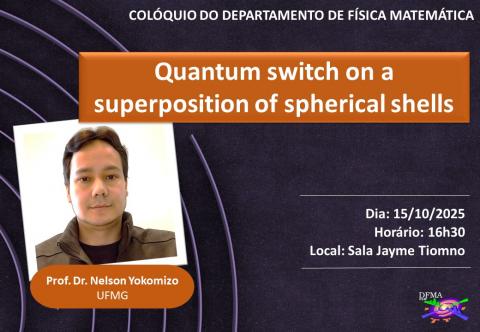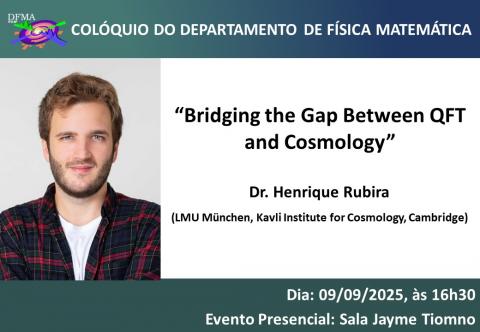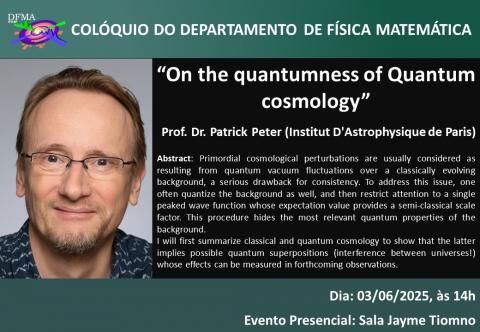"Searching for the effects of physics beyond the Standard Model through flavor"

Abstract: Phenomenological models have recently been explored for the analysis of possible effects in quantum systems due to a superposition of geometries, including the occurrence of processes with indefinite order. In particular, in a gravitational quantum switch, the order of operations applied by two agents on a target system is entangled with the state of the geometry. We consider a model describing the superposition of geometries produced by distinct arrangements of spherical mass shells, and show that a protocol for the implementation of a gravitational quantum switch can be formulated in such a system.

Abstract: Major improvements in the theoretical aspects of Cosmology have been possible in recent years due to QFT-inspired methods, such as the effective field theory of large-scale structure (EFTofLSS). In this talk, I will discuss novel two-loop results. I will also explore further connections between high-energy physics and cosmology. I will present a systematic approach to renormalizing the galaxy bias parameters using path integrals and a finite cutoff scale Λ. I will derive the differential equations of the Wilson-Polchinski renormalization group that describe the evolution of the finite-scale bias parameters with Λ, analogous to the β-function running in QFT.


Abstract: Primordial cosmological perturbations are usually considered as resulting from quantum vacuum fluctuations over a classically evolving background, a serious drawback for consistency. To address this issue, one often quantize the background as well, and then restrict attention to a single peaked wave function whose expectation value provides a semi-classical scale factor. This procedure hides the most relevant quantum properties of the background.
I will first summarize classical and quantum cosmology to show that the latter implies possible quantum superpositions (interference between universes!) whose effects can be measured in forthcoming observations.